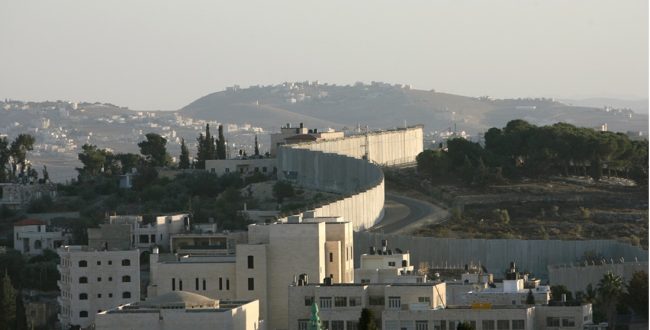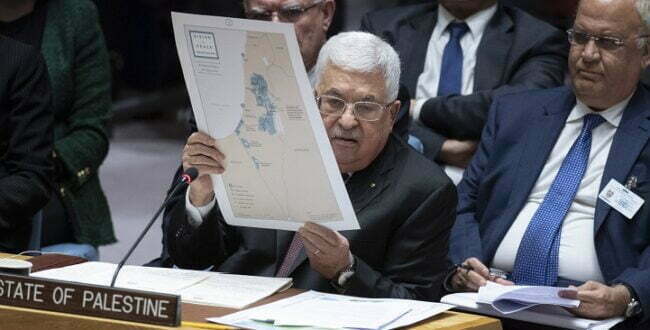In July 2024, a Moroccan delegation of 23 individuals visited Israel under the auspices of the Sharaka organization. Sharaka, meaning “partnership” in Arabic, aims to foster understanding and collaboration between Arabs and Israelis. This delegation’s visit was multifaceted, encompassing Holocaust education, meetings with Israeli officials, and discussions about the surge in antisemitism following the events of October 7th.
However, the delegation’s activities and social media posts caused significant outrage in Morocco. Critics from Algeria, Polisario, and Iran capitalized on these events, highlighting the dichotomy of Gazan suffering and Moroccans seemingly endorsing Israel by celebrating its “military operations in Gaza” while waving its flag in “occupied Jerusalem.” This perceived provocation was met with vehement criticism, particularly from traditional anti-Israel factions in Morocco, such as Islamist organizations and radical leftists. What was initially a familiar scenario of delegations and predictable backlash took a dramatic turn on July 9th.
During a gathering at the Friends of Zion Museum in Jerusalem, Moroccan delegates, Israeli officials, and influencers convened to discuss Israeli-Moroccan relations and the importance of such delegations. The head of Sharaka in Morocco made a controversial statement, citing a Quranic verse (17:104) to assert that the Quran supports the Israelites’ legitimacy over the land of Israel. He argued that the verse, which speaks about the exodus of the Israelites and their settlement in the Promised Land, also supports Jewish immigration to Israel. Despite possible misunderstandings of translation and context, his subsequent declaration caused a greater uproar: he proclaimed that, as a Muslim, he was also a Zionist and even suggested that the Prophet Muhammad could be considered a Zionist at certain times.
The release of this footage instigated significant backlash, not only in Morocco but throughout the Arab world. Many Muslims accused the head of Sharaka of apostasy, calling him a sellout or a ‘Jewish infiltrator’ attempting to undermine Islam. Meanwhile, many Jews struggled to understand the outrage, as they saw the term “Zionist” as non-insulting and simply factual. However, for Muslims, Zionism is indeed an insult.
When the Jewish people left Egypt and wandered in the Sinai desert, they were guided by the promise of a homeland, a promised land that was central to their identity and faith. This journey and subsequent settlement in Israel are seen as early expressions of Zionism
Zionism is a complex term. According to the Oxford dictionary, Zionism is a movement for the re-establishment and development of a Jewish nation in what is now Israel. Established as a political organization in 1897 under Theodor Herzl and later led by Chaim Weizmann, Zionism has ancient roots for Jews. The term derives from “Zion,” a synonym for Jerusalem, representing the collective connection of the Jewish people to the land of Israel. Historical moments such as the exodus from Egypt, King David’s establishment of Jerusalem as the capital of the Judean kingdom, and the return to Zion from Babylon led by Ezra and Nehemiah, exemplify Zionism. Though the longing and connection to the land of Israel were not termed “Zionism” until the 19th century, they have always been present.
In that historic sense, all Jews could be considered Zionists, as they all feel a special connection to the Land of Israel. However, modern Zionism as it evolved with figures like Theodor Herzl, Rabbi Samuel Mohilever, and Ahad Ha’am, transitioned from a simple notion of Jewish nationalism to a political interest in establishing a Jewish state. The establishment of the modern state of Israel in 1948, which is viewed by Palestinians and many Arabs as the Nakba (catastrophe), intensified the negative connotations of Zionism. The longing for Zion and the establishment of a Jewish state were seen as colonialist moves by white Europeans to extend their power in the Middle East.
The Historical and Emotional Context of Zionism for Jews
For Jews however, Zionism is much more than just a political movement; it is a deeply rooted historical and emotional connection to the Land of Israel. This connection is reflected in numerous historical and religious texts, such as Psalm 137:1: “By the rivers of Babylon, there we sat, sat and wept, as we thought of Zion.” This verse encapsulates the profound longing of the Jewish people for their homeland during the Babylonian exile.
When the Jewish people left Egypt and wandered in the Sinai desert, they were guided by the promise of a homeland, a promised land that was central to their identity and faith. This journey and subsequent settlement in Israel are seen as early expressions of Zionism. King David’s unification of the tribes and establishment of Jerusalem as the capital of his kingdom further solidified this connection. The return to Zion led by Ezra and Nehemiah after the Babylonian exile, known as “Shivat Tsion,” is another significant Zionist moment in Jewish history.
Modern Zionism, which emerged in the late 19th century, was driven by the need for a safe haven for Jews in response to rising Antisemitism in Europe. Theodor Herzl, often referred to as the father of modern Zionism, envisioned a Jewish state where Jews could live freely and safely. This vision was realized with the establishment of Israel in 1948, a momentous event for Jews worldwide but viewed as a catastrophe by many Arabs and Palestinians.
The Arabic dictionary al-Wasit, defines Zionism as a political, imperialist and racist movement, reflecting the dominant perception in the Arab world. This definition excludes the historical and emotional aspects of Zionism for Jews
The Arab Perception of Zionism
For many Arabs, Zionism is often synonymous with imperialism, colonialism, and injustice. The establishment of Israel is seen as a foreign imposition on Arab lands, resulting in the displacement and suffering of Palestinians. This perspective is deeply ingrained and reinforced by historical experiences and political narratives.
The Arabic dictionary al-Wasit, defines Zionism as a political, imperialist and racist movement, reflecting the dominant perception in the Arab world. This definition excludes the historical and emotional aspects of Zionism for Jews, focusing instead on its political implications. Consequently, anyone who identifies as a Zionist is seen as supporting racism and imperialism.
This perspective is further complicated by the political dynamics in the region. The Arab-Israeli conflict, ongoing tensions, and periodic violence have cemented negative views of Zionism among many Arabs. The term is often used pejoratively to describe betrayal, manipulation, and untrustworthiness. Thus, when the head of Sharaka called the Prophet Muhammad a Zionist, it was interpreted as an egregious insult, questioning the integrity and character of the Prophet, which is deeply offensive to Muslims.
Zionism as a Concept with Semantic Ambiguity
Zionism is a word with significant semantic ambiguity, particularly in the Arab world. The term’s meaning has evolved and varies widely depending on the cultural, historical, and political context. This ambiguity was highlighted in 1975 when the United Nations General Assembly passed Resolution 3379 which determined that “Zionism is a form of racism and racial discrimination.” This resolution, supported by 72 countries, including many African and Muslim-majority nations, was a reflection of the prevailing global sentiment at the time. Although the resolution was revoked by the UN in 1991, the revocation did not necessarily translate into a comprehensive understanding of Zionism worldwide.
For Arabs, Zionism is often linked to the perceived injustices against Palestinians, imperialism, land seizure, and the suppression of local populations and identities. It is a deeply negative term, associated with colonialist endeavors and exploitation. This perception is reinforced by decades of conflict and the ongoing struggles of Palestinians, making Zionism a term heavy with negative connotations.
To move forward, it is essential for both sides to seek a deeper understanding of each other’s perspectives
For Jews, Zionism represents a fundamental aspect of their identity and history, rooted in centuries of longing for a homeland and the establishment of a safe and secure state. This profound emotional and historical connection is often misunderstood or overlooked in the Arab world.
Bridging the Understanding Gap
To move forward, it is essential for both sides to seek a deeper understanding of each other’s perspectives. Arabs must recognize the historical and emotional significance of Zionism for Jews. It is not merely a political ideology but a fundamental aspect of Jewish identity and history. Understanding this can help demystify the term and reduce some of the hostility associated with it.
Conversely, Jews need to be aware of the sensitivities surrounding Zionism in the Arab world. They should acknowledge the historical grievances and ongoing struggles of Palestinians and the broader Arab population. Respecting these perspectives is crucial for fostering dialogue and reconciliation.
The head of Sharaka, in particular, must be mindful of his words to avoid causing further controversy and division.
Adam al-Maghrebi is a Moroccan analyst specializing in intercultural and interreligious relations.
















